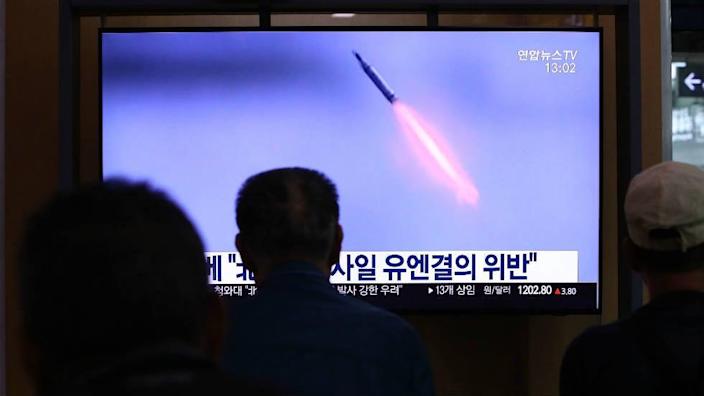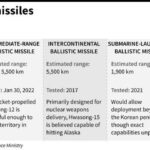
North Korea tested a “relatively new” intercontinental ballistic missile system in February and earlier this month, a senior Biden administration official said Thursday, describing the tests as a “serious escalation” by Pyongyang.
North Korea last tested an intercontinental ballistic missile in 2017.
“After careful analysis, the U.S. government has concluded that the DPRK’s two ballistic missile tests on Feb. 26 and March 4 of this year involved a relatively new intercontinental ballistic missile system that the DPRK is developing,” the official told reporters on Thursday.
“This is a serious escalation by the DPRK, but unlike the DPRK’s three ICBM tests in 2017, neither of these launches demonstrated ICBM range or capability,” the official said.
South Korea’s military previously reported the missile tests as they happened. In both cases, South Korea said the missiles were launched into the sea and flew less than 200 miles while reaching altitudes of less than 400 miles.
The Biden administration believes that the launches were meant to test elements of the new system before a full-range launch is conducted, the senior official said Thursday, warning that North Korea could disguise a future launch as a space launch.
The official said that the ballistic missile was first unveiled in October 2020 during North Korea’s ruling Workers’ Party parade. The large military parade marked the 75th anniversary of the ruling party.
In response to the missile tests, the Treasury Department is expected to announce new actions on Friday that would prevent North Korea from obtaining foreign technologies to advance its weapons program.
The U.S. Indo-Pacific Command also said earlier this week it was ordering intensified intelligence, surveillance and reconnaissance activities in the Yellow Sea and “enhanced readiness” of ballistic missile defense forces in the Indo-Pacific in response to recent North Korean ballistic missile launches.
The new information comes a day after President Biden spoke with Yoon Suk-yeol, who was elected South Korea’s next president this week.
The White House readout of the call Wednesday evening said the two “committed to maintain close coordination on addressing the threats posed by the Democratic People’s Republic of Korea’s nuclear and missile programs.”




